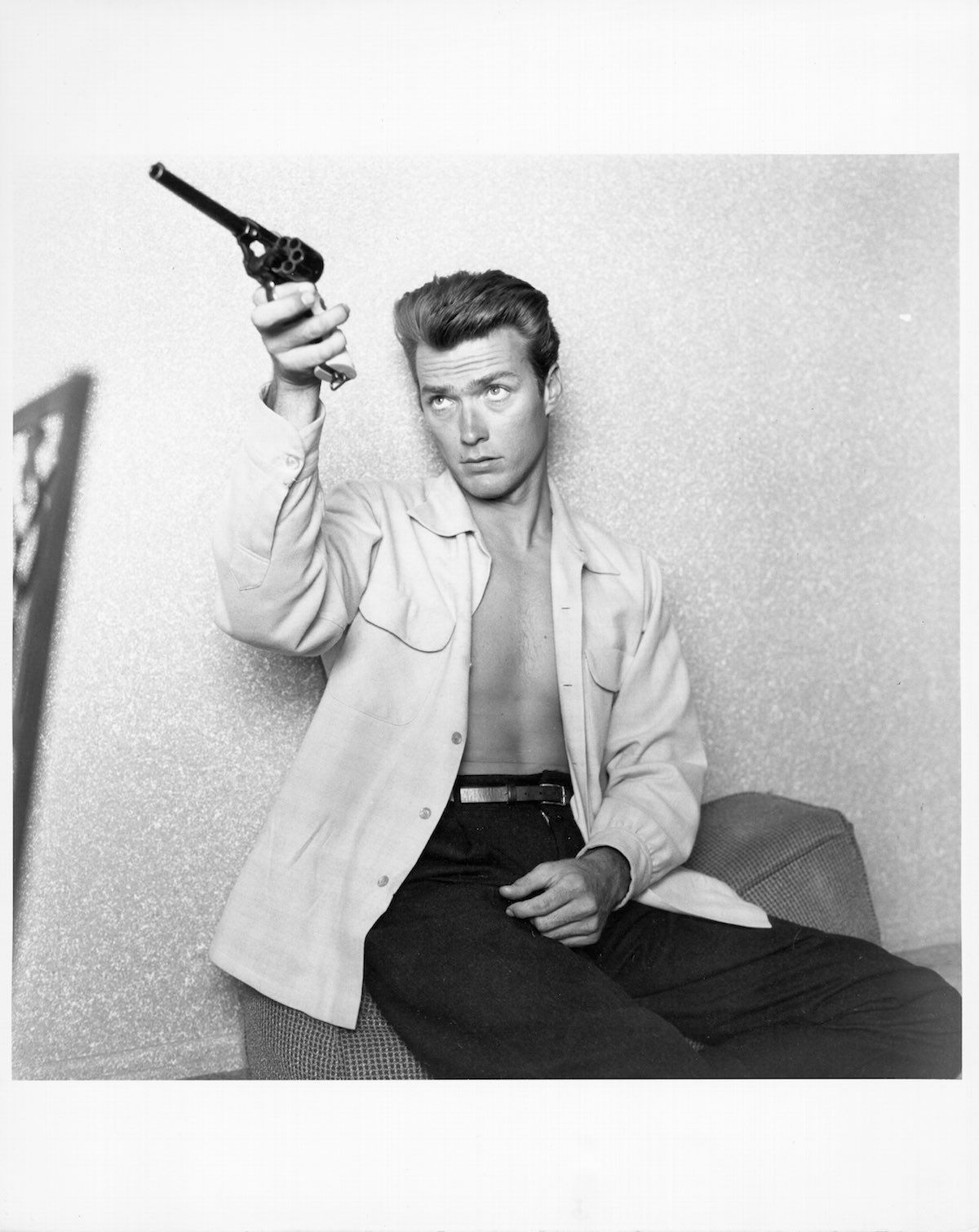Young Clint Eastwood: The Rise Of A Hollywood Icon
Young Clint Eastwood has long been a figure of fascination in the film industry. From his humble beginnings to his emergence as one of Hollywood's most iconic actors and directors, Eastwood's journey is inspiring and multifaceted. In this article, we will explore the early life, career milestones, and lasting impact of Clint Eastwood on cinema and culture.
Born on May 31, 1930, in San Francisco, California, Clint Eastwood grew up during the Great Depression. His early years were shaped by economic struggles, but they also instilled in him a strong work ethic and resilience. As a young man, Eastwood's path to stardom was anything but straightforward, marked by numerous challenges and rejections before he found his niche in the film industry.
This article will delve into various aspects of Young Clint Eastwood's life, including his biographical details, the evolution of his career, and his influence on modern filmmaking. Through a detailed examination of his contributions to cinema, we aim to provide readers with a comprehensive understanding of why Clint Eastwood remains a pivotal figure in Hollywood.
Table of Contents
- Biography of Clint Eastwood
- Early Life and Education
- Career Beginnings
- Breakthrough Role
- Directing Career
- Impact on Cinema
- Awards and Recognition
- Conclusion
Biography of Clint Eastwood
Clint Eastwood is not just an actor; he is a filmmaker, composer, and cultural icon. He has directed and starred in numerous films, showcasing his versatility and talent. Here is a brief overview of his personal data:
| Date of Birth | May 31, 1930 |
|---|---|
| Place of Birth | San Francisco, California, USA |
| Occupation | Actor, Director, Producer |
| Years Active | 1955 - Present |
| Notable Works | Unforgiven, Million Dollar Baby, Gran Torino |
Early Life and Education
Clint Eastwood was born to Ruth (née Runner) and Clinton Eastwood Sr. His father worked as a manufacturing executive, while his mother held various jobs to support the family. Growing up in a modest household, Eastwood learned the value of hard work from an early age.
Eastwood's family moved often during his childhood, which led him to attend several different schools. After graduating from high school, he briefly attended Los Angeles City College, where he studied music and drama. Although he did not complete his degree, Eastwood's passion for the arts flourished during this time.
Career Beginnings
Clint Eastwood's journey into the entertainment industry began in the 1950s when he landed small roles in television shows. His first significant break came when he was cast in the TV series "Rawhide," where he played the character Rowdy Yates from 1959 to 1965. This role marked the beginning of his rise to fame.
During this period, Eastwood honed his acting skills and developed a distinct persona that would become his trademark. His rugged good looks and brooding demeanor captured the attention of audiences, paving the way for greater opportunities in film.
Breakthrough Role
Eastwood's breakthrough came with the "Dollars Trilogy," a series of spaghetti westerns directed by Sergio Leone. The first film, "A Fistful of Dollars" (1964), showcased Eastwood as the "Man with No Name," a character that epitomized the anti-hero archetype. This role catapulted him to international stardom.
- A Fistful of Dollars (1964) - Eastwood's portrayal of the enigmatic gunfighter introduced him to a global audience.
- For a Few Dollars More (1965) - The sequel solidified his status as a leading man in Westerns.
- The Good, the Bad, and the Ugly (1966) - This film is considered one of the greatest westerns of all time and further established Eastwood's legacy.
Directing Career
In addition to acting, Clint Eastwood ventured into directing with remarkable success. His directorial debut, "Play Misty for Me" (1971), was a psychological thriller that demonstrated his ability to craft compelling narratives. Over the years, Eastwood directed numerous critically acclaimed films, including:
- Unforgiven (1992) - A deconstruction of the Western genre that won four Academy Awards, including Best Picture.
- Million Dollar Baby (2004) - A touching story of redemption that earned Eastwood two Oscars for Best Director and Best Picture.
- Gran Torino (2008) - A film that highlighted Eastwood's ability to tackle contemporary social issues.
Impact on Cinema
Clint Eastwood's influence on cinema extends beyond his performances and direction. He has redefined the portrayal of masculinity in film, often blurring the lines between heroism and villainy. His characters are complex, reflecting the moral ambiguities of human nature.
Moreover, Eastwood has been a pioneer in independent filmmaking, often financing his projects and taking creative control. This approach has inspired a generation of filmmakers to pursue their artistic visions without compromising their integrity.
Awards and Recognition
Throughout his illustrious career, Clint Eastwood has received numerous awards and accolades, including:
- 4 Academy Awards
- 2 Golden Globe Awards
- Honorary Academy Award for Lifetime Achievement
- AFI Life Achievement Award
These recognitions underscore his contributions to the film industry and his status as a cinematic legend.
Conclusion
In summary, Young Clint Eastwood's journey from a struggling actor to a Hollywood icon is a testament to his talent, perseverance, and passion for filmmaking. His impact on cinema is profound, and his films continue to resonate with audiences worldwide. As we reflect on his remarkable career, we encourage readers to explore his filmography and witness the artistry of Clint Eastwood firsthand.
If you enjoyed this article, please leave a comment below, share it with your friends, or explore more articles on our site about influential figures in cinema.
Thank you for reading, and we hope to see you again soon!
Article Recommendations
- Exploring Zone436 A Comprehensive Guide To The Ultimate Gaming Experience
- Fantasia Barrino Did She Pass Away
- Sophie Rains Sister The Untold Story Of Their Bond


